Queen Elizabeth II of England advised the governor-general he could overthrow the elected government of Australia – and he did,
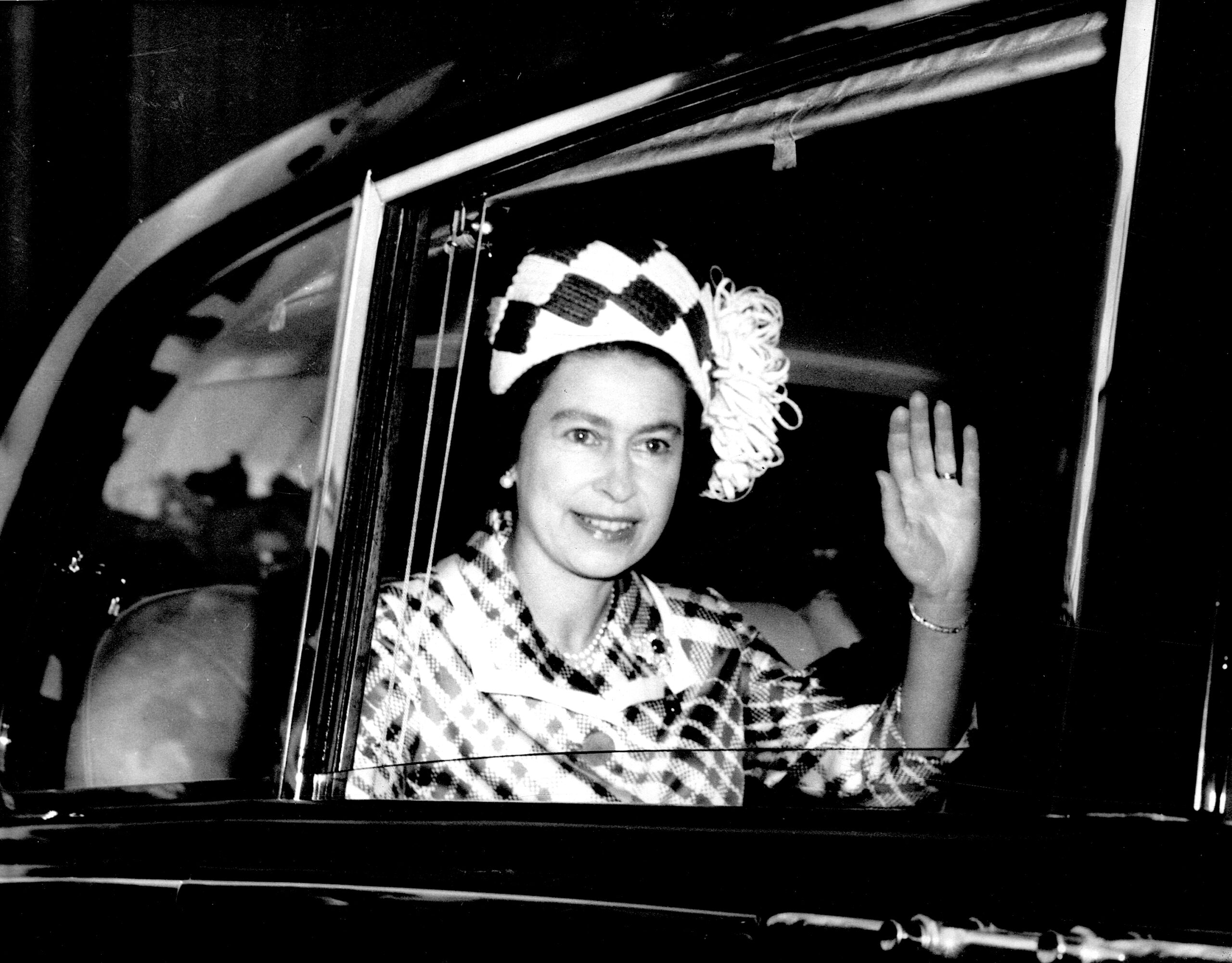
Queen Elizabeth II waving to crowds in Queensland, Australia, 1970. (Queensland State Archives, CC BY 3.0 au,Wikimedia Commons)
By Jenny Hocking and Peter Cronau
Declassified Australia

 It is 47 years since the Australian governor-general, Sir John Kerr, dismissed without warning the elected Labor government of Gough Whitlam.
It is 47 years since the Australian governor-general, Sir John Kerr, dismissed without warning the elected Labor government of Gough Whitlam.
For decades after Whitlam’s dismissal, a disarmingly simple narrative had been locked in place, which kept the role of the queen and the Palace courtiers out of public view.
The narrative from that Nov. 11 day in 1975 was that Kerr had reached a lonely and isolated decision and that he had had no other option in the face of the Opposition’s blocking of supply but to dismiss the government.
The queen’s then deputy private secretary was an Australian, Sir William Heseltine, and he stated: “The Palace was in a state of total ignorance.” In reality however, nothing was quite so simple, nor as constitutionally proper.
Thanks to a series of archival declassifications, what has emerged reveals a complex web of deception, collusion, and denial in which the Palace was deeply and undeniably involved.*
Following a four-year High Court legal battle, the declassification and release in 2020 of the secret Palace Letters between the queen in England, and the governor-general in Australia, turned that history on its head.
The letters confirmed that the queen through her private secretary Sir Martin Charteris, discussed the possible dismissal of the government with the governor-general and advised him on the use of “reserve powers” to do so, against the advice of both the Australian solicitor-general and attorney-general.
No respectable historian or journalist could now accept that the queen had “no part to play” in the dismissal of the Whitlam government as the protectors of the royal family in Buckingham Palace continues to claim.
Having now the benefit of the Palace Letters in their entirety, Heseltine’s claim of the “total ignorance” of the Palace is simply staggering.
Heseltine was no minor player himself. He had previously been the private secretary to Liberal Prime Minister Robert Menzies and had been assistant federal director of the Liberal Party of Australia for two years.
The Palace Letters provide an exceptional window on the secret political relationship between the queen and the governor-general during one of the most controversial episodes in Australia’s political history.
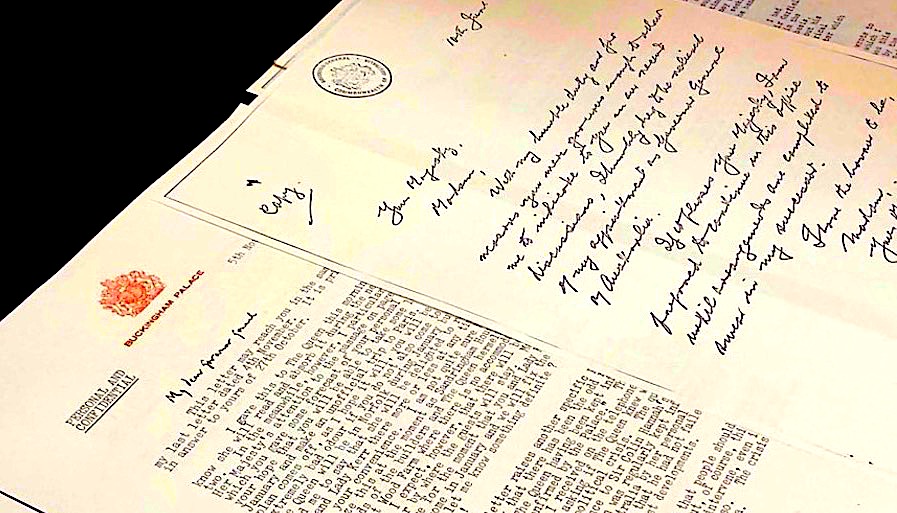
Truth laid bare. The documents that make up thePalace Letters are now available for public perusal online at the National Archive of Australia.
After decades of speculation, the letters show once and for all that the queen and Prince Charles, now Australia’s king, knew as early as September 1975 that Kerr was considering dismissing the government, two months before he did so. This timing was damning.
They knew a dismissal was being considered by Kerr in the absence of any crisis in government, since the Opposition had not yet made its decision to withhold supply in the Senate.
Even worse, they knew of Kerr’s failure to follow the vice-regal convention to “advise, counsel and warn” the prime minister about his planning and thinking, including for possible dismissal. And they did not object to Kerr’s deceit nor warn Whitlam of it.
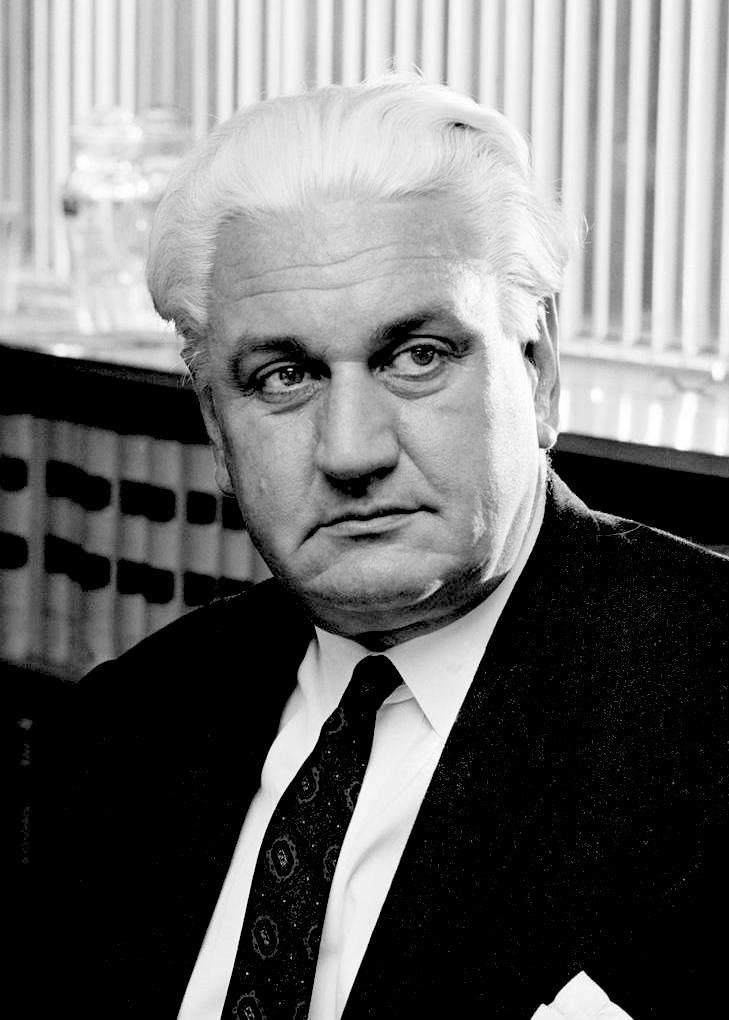
John Kerr in 1965. (Australian News and Information Bureau, Mike Brown, Public Domain)
Even Kerr’s secret adviser, Australia’s High Court justice Sir Anthony Mason told him, “If you do not warn Whitlam you run the risk of being seen as deceptive.” The Palace was seemingly confident that that “royal secrecy” would forever cover up their role and leave no trace of their discussions with Kerr.
The most significant of these collusive discussions between Kerr and the Palace about the possible dismissal of the Australian government, was revealed in a letter from Charteris to Kerr in early October.
Far from remaining disinterested and “politically neutral,” the Palace Letters show that the queen discussed intensely political matters with Kerr over several months – from petty questions of vice-regal dress, insignia and protocols, to the defining element of the dismissal, the existence and use of the “reserve powers” to dismiss the government.
It confirms that in September 1975, several weeks before the opposition Coalition senators first moved to defer a Senate vote on the supply bills, Kerr had privately raised the prospect of dismissing the Labor government. He did this in a secret face-to-face meeting with Charles when they both attended the Sept. 16, 1975, Papua New Guinea independence celebrations in Port Moresby.
Kerr told Charles that he was “considering having to dismiss the government.” Kerr raised his fears that the prime minister might sack him first should Whitlam become aware of the plotting.
Kerr’s own notes of that secret discussion record Charles’ solicitous response:
“Surely Sir John, the Queen should not have to accept advice that you should be recalled at the very time, should this happen, when you were considering having to dismiss the government.”
Upon Charles’ return to England, he met with the queen and Sir Martin Charteris to discuss the startling information from Kerr that he was considering sacking the prime minister. The group discussed how the queen would deal with any advice from Prime Minister Whitlam to recall the governor-general, if Whitlam had decided to do so.
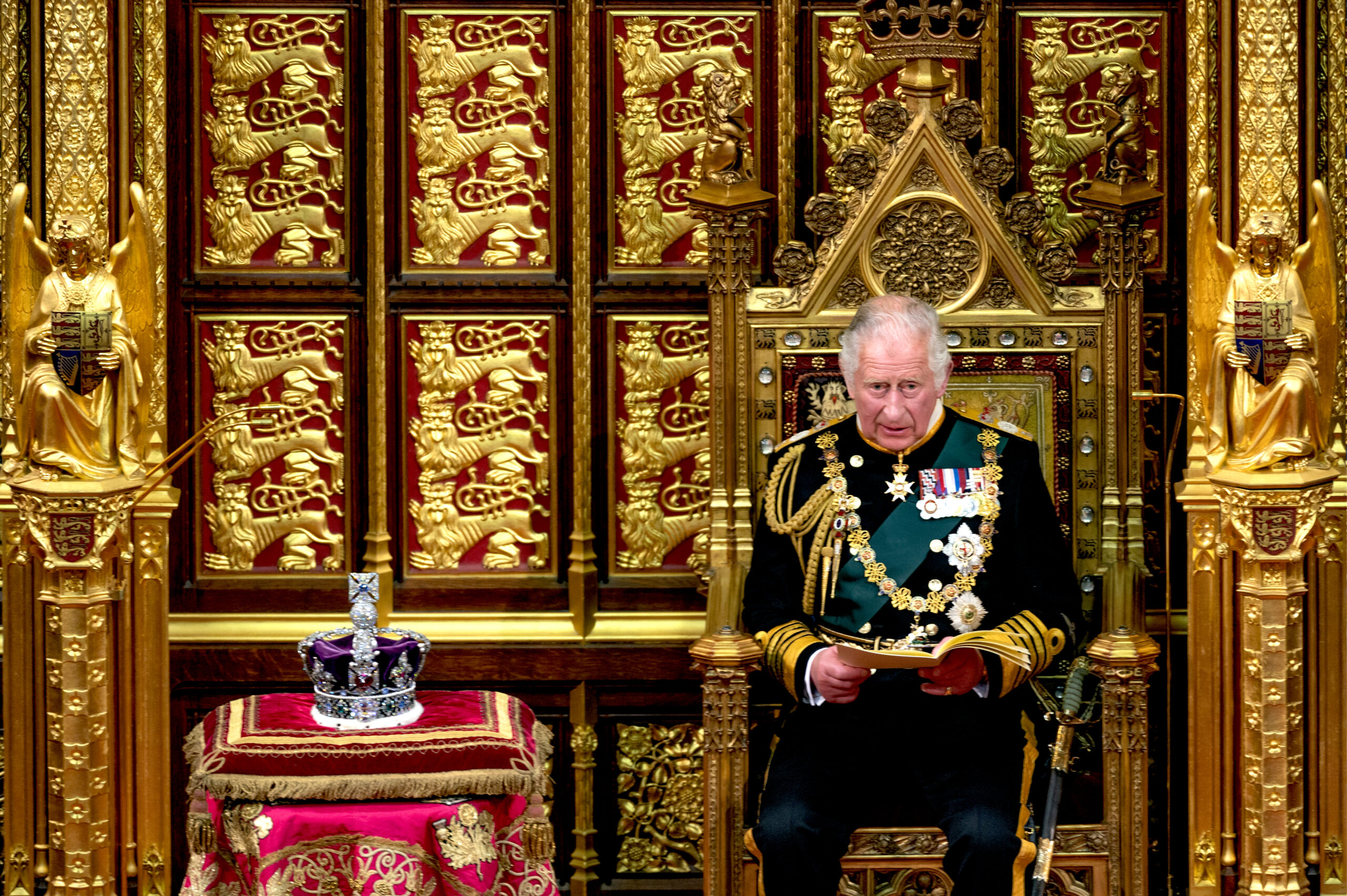
King Charles, while prince of Wales, delivering the Queen’s Speech on behalf of his mother in May. (House of Lords/ Annabel Moeller, CC BY 2.0, Wikimedia Commons)
As Kerr later recalled, in early October 1975 following the discussions, Charteris wrote back to him in elegant language only thinly disguising its profound impropriety, setting out the queen’s advice.
Kerr was told that should “the contingency to which you refer” arise – that is, if Whitlam advised the queen to remove Kerr on becoming aware of Kerr’s intentions to dismiss the government – the queen would delay responding, thereby stalling Whitlam.
[Related: JOHN PILGER: The Forgotten Coup Against ‘The Most Loyal Ally’, Consortium News.]
Charteris advised that the queen would not immediately act on the prime minister’s advice as required, but would “try to delay things,” and so give Kerr the time and opportunity to strike first. Heseltine later called this “a policy of political delay,” making clear the political and partisan nature of this royal advice to the governor-general.

The definitive work on the subject, Jenny Hocking’s book The Palace Letters: The Queen, the governor-general, and the plot to dismiss Gough Whitlam, tells the story of the eventful archival research journey and legal battle to secure the release of the Palace Letters, and their impact on the history of the dismissal of the Whitlam government. Published by Scribe Publications in November 2020, it has been described as “a political thriller,” an “absorbing courtroom drama’” and “vital Australian history.” (DeclassifiedAustralia)
Kerr was warned, however, that the queen would eventually, after “considerable comings and goings,” have to bow to the prime minister’s request. The queen had effectively warned Kerr that, in his planning to remove the sitting prime minister and elected government, he would need to act swiftly and with secrecy.
This is that written advice from the Palace to Governor-General Kerr:
“Prince Charles told me a good deal of his conversation with you and in particular that you had spoken of the possibility of the Prime Minister advising The Queen to terminate your Commission with the object, presumably, of replacing you with someone more amenable to his wishes.
If such an approach was made you may be sure that The Queen would take most unkindly to it. There would be considerable comings and goings, but I think it is right that I should make the point that at the end of the road The Queen, as a Constitutional Sovereign, would have no option but to follow the advice of her Prime Minister.”
These are powerful words from the queen to the governor-general who has secretly advised the Palace that he is considering dismissing the government. To quote former Liberal Prime Minister Malcolm Turnbull, “This advice no doubt reinforced Kerr in concluding that to forestall any risk of Whitlam sacking him, he would need to give him no, or very little, warning of his intention.”
This direct involvement of the queen in a discussion with Kerr about his own tenure as governor-general, unknown to the prime minister, was manifestly improper.
The appointment or removal of a governor-general is a decision for the prime minister alone to advise the monarch, and had been since the 1926 Imperial Conference firmly established it.
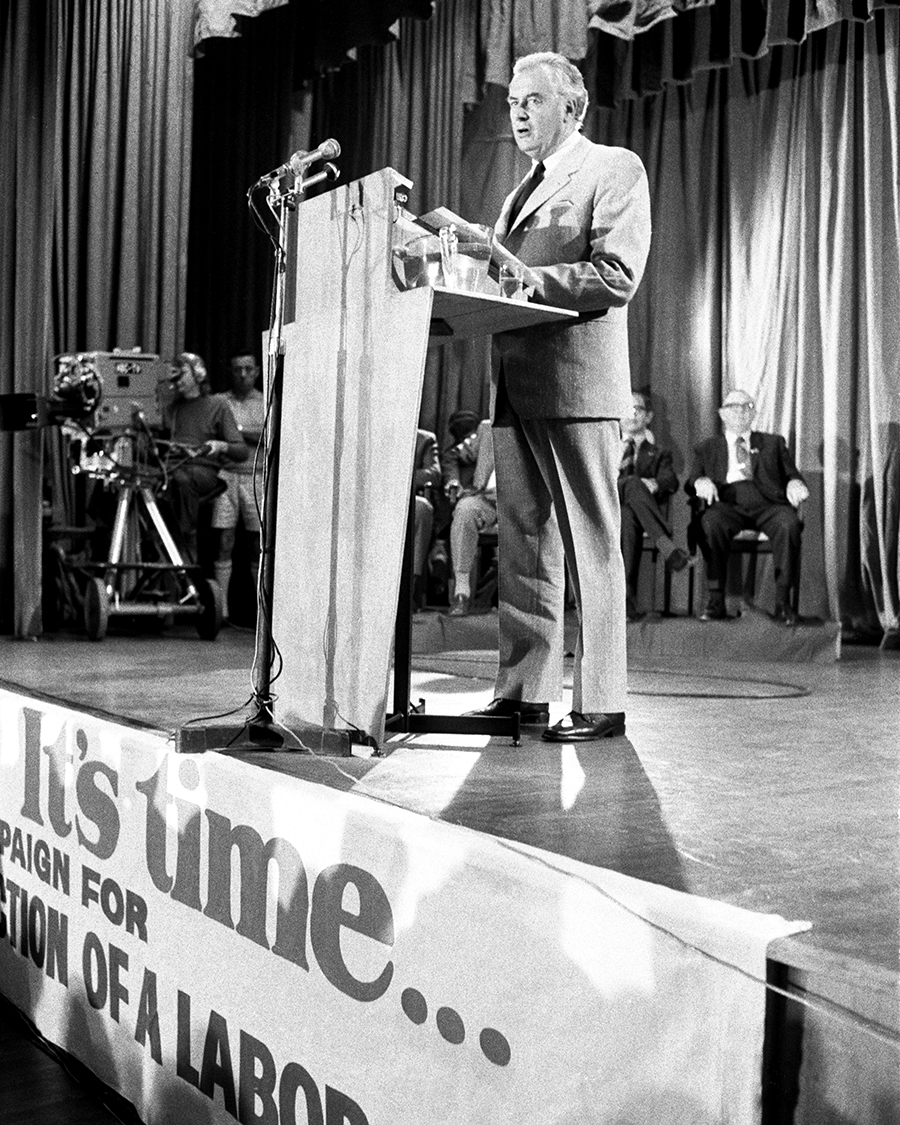
Gough Whitlam giving a speech during the 1972 election campaign. (National Archives of Australia, CC BY 4.0, Wikimedia Commons)
The deception by the queen upon the elected prime minister of Australia went even deeper. Kerr himself noted that in her advice to him, the queen raised no objection to the prospect of the dismissal of the Whitlam government without warning. In doing so, she became a party both to Kerr’s planning of the dismissal and to his failure to warn Whitlam.
In this exchange, the queen had expressed an extraordinarily partisan political view. She was condemning the prime minister for a hypothetical action against Kerr, the governor-general’s possible recall, that Whitlam never took.
She was at the same time entirely uncritical of the actions of a rogue governor-general envisaging the dismissal of an elected government and a prime minister who retained the confidence of the House of Representatives.
In doing so, the queen had breached the core requirement of royal “political neutrality” absolutely.
On Oct. 21, 1975, with Supply now blocked in the Senate for nearly a week, at Kerr’s request Whitlam asked the chief Australian law officers to prepare an opinion on just this question of the possible use of the “reserve powers.”
The solicitor-general and attorney-general concluded that, after two centuries of disuse in the Westminster parliamentary system, the “reserve powers” most likely no longer existed, and that there was certainly no basis for them to be used in the current Australian parliamentary stalemate over supply, which they considered a political and not a constitutional issue.
While the opinion of Australia’s two most senior law officers was being prepared, Kerr contacted the Palace to tell them the advice would probably conclude there was no grounds for using “reserve powers.” He then told the Palace that he may not accept the advice of the Australian law officers, his formal constitutional advisers:
“It does not follow that in an extreme Constitutional crisis I would accept that.”
In this declaration, written three weeks before he dismissed the government, Kerr has let the queen know that he was prepared to act against the advice of his prime minister and the most senior Commonwealth law officers on the question of the reserve powers, before he has even received that advice.
Pointedly, the Palace made no attempt in responding to this extraordinary statement to dissuade Kerr from rejecting the legal advice, nor remind him of the “cardinal principle” of a constitutional monarchy — that the governor-general acts on the advice of responsible ministers, namely the prime minister.
But at this crucial moment, the queen’s letters are at their most overtly political. They contradict the expected advice of the law officers and of the prime ,inister to Kerr and instead encourage him to act unilaterally in using the reserve powers. “That you have powers is recognised,” Charteris told the governor-general, just as the law officers were determining that he did not.
Charteris’ final letters just days before the dismissal are quite extraordinary. They are seen as providing Kerr with the “permission” he was seeking, to act against the government on the basis of ‘the reserve powers’ should he chose to do so.
On Nov. 4, the queen assures Kerr not only that the contested and controversial reserve powers exist: “those powers do exist,” but moreover, that any opinion to the contrary is simply wrong; “I do not agree.”
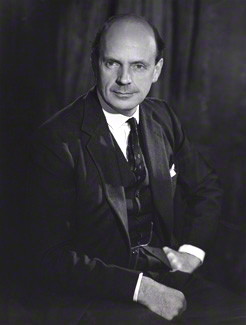
Martin Charteris in 1962, while assistant private secretary to the sovereign. (Walter Bird, Fair Use, Wikimedia Commons)
A letter from Charteris the following day, the queen’s final letter before the dismissal, is even stronger. Far from urging “caution” as some inaccurate observers have claimed, Charteris dismisses the concerns which Kerr has expressed in an earlier letter, that any use of the reserve powers might harm the position of the monarchy in Australia.
Charteris reassures Kerr of the Palace view on the use of the reserve powers against Whitlam, telling him that this could only be a positive step for the Crown:
“If you do, as you will, what the constitution dictates, you cannot possibly do the Monarchy any avoidable harm. The chances are you will do it good.” [our emphasis]
Kerr received the Australian senior legal officers’ opinion on Nov. 6, 1975, and, as he had anticipated, it gave no grounds for using the reserve powers to dismiss Whitlam: “The mere threat of or indeed the actual rejection of Supply neither calls for the ministry to resign nor compels the Crown’s representative thereupon to intervene.” The opinion advised Kerr that there was no basis for him to act.
However, it seems Kerr, instead of accepting the advice of Australia’s senior legal officers, accepted the advice of the Palace and elected to intervene as the Palace had advised was certainly valid and would only “do it good.” Five days later Kerr dismissed the prime minister, Gough Whitlam, and his government, in an unprecedented act of vice-regal intervention.
Just four months after the dismissal, in March 1976, Prince Charles sent a long hand-written letter to his confidante Sir John Kerr. In it Charles let the besieged governor-general know that he fully supported Kerr’s dismissal of the Australian government without warning:
“I wanted you to know that I appreciate what you do and admire enormously the way you have performed in your many and varied duties. Please don’t lose heart. What you did last year was right and the courageous thing to do.”
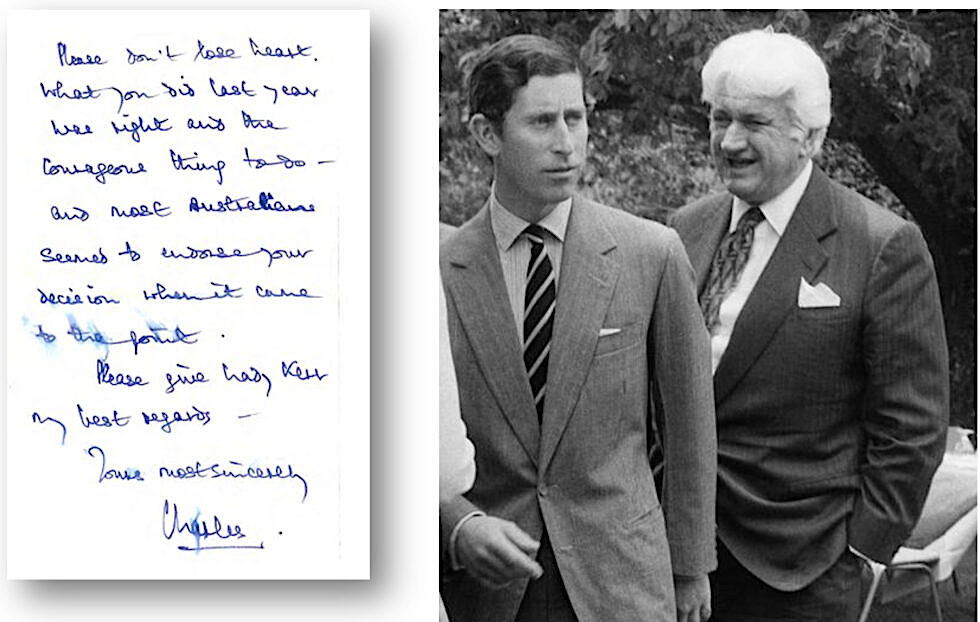
Thank-you letter. Extract from the letter by Prince Charles, now King Charles III, expressing his keen appreciation and approval of the sacking of the Labor Whitlam government, in a private handwritten letter to Sir John Kerr on 27 March 1976, just four months after the dismissal. (John Casamento)
Despite what is now well documented and indisputable evidence to the contrary, the Palace continues to claim that these discussions between the queen, her private secretary, Prince Charles and the governor-general played no part in Kerr’s decision to dismiss the government.
Within hours of the Palace Letters’ release in 2020, Buckingham Palace issued a rare public statement denying that they played any part in Kerr’s move to dismiss the government: “neither Her Majesty nor the Royal Household had any part to play in Kerr’s decision to dismiss Whitlam.”
This absurd denial is not only impossible to reconcile with the documented history as we now know it, it is an insult to that history which has been so hard fought for.
The “Palace Letters” case opened the door to scrutiny of the role of the monarch in matters of governance, by rejecting the claims of “royal secrecy” over this immensely significant correspondence.
The High Court’s rejection of this powerful non-disclosure mechanism of “royal secrecy” is a profoundly important outcome of the declassification of the Palace Letters.
Australia is alone among Commonwealth nations in having successfully challenged that arcane notion as it has applied in the National Archives, bringing the actions of the monarch into the public domain, as they should be. The country’s history is infinitely richer for it.
As a result, only now can be seen clearly the interventionist role of Queen Elizabeth and of Charles, now king of Australia, in enabling and encouraging the governor-general in his removal of the elected Whitlam government.
The implications of this for Australia’s future should be obvious.
—
* Editors’ Note: This article addresses the archival documents known as the Palace Letters, revealing British royal involvement in the Whitlam dismissal. It does not at all preclude involvement of other players and agencies in the undermining and removal of the then Labor government. There is of course substantial evidence of the involvement of elements of the transnational security state, and we await declassification of other UK, US and Australian archival records and sources that may shine further light into this dark corner of the Australian story.
Jenny Hocking is an award-winning author, emeritus professor at Monash University, Fellow of the Academy of Social Sciences in Australia, and inaugural Distinguished Whitlam Fellow at the Whitlam Institute, Western Sydney University. She is the author of numerous books including the highly acclaimed two-volume biography of Gough Whitlam, as well as her latest book The Palace Letters: The Queen, the governor-general, and the plot to dismiss Gough Whitlam.
Peter Cronau is an award-winning investigative journalist, writer, and film-maker. His documentaries have appeared on ABC TV’s Four Corners and Radio National’s Background Briefing. He is an editor and cofounder of DECLASSIFIED AUSTRALIA. He is co-editor of the recent book A Secret Australia – Revealed by the WikiLeaks Exposés.
This article is from Declassified Australia.
The views expressed are solely those of the authors and may or may not reflect those of Consortium News.

So the place has never really be a “free country.”
With the queen gone, I suppose the American Deep State now is in complete control.
Charley Boy? He’s got some ‘splainin’ to do. LOL!
On June 1, 2020, Australian reporter John Pilger also wrote an article about the dismissal of Gough Whitlam.
Consortium News published it.
Something similar, but on a smaller scale, happened not long ago in Canada, where the Governor General (by suspending parliament) blocked a no-confidence vote that was going to bring down a Tory government. I wonder whether the queen was involved there too.
Just one independent decision of importance has been made by Australia …..by an Australian Prime Minister. The return of Australian troops to defend our own country during WWII. Called back from serving again under British command in Europe as the Japanese neared Australia. They didn’t like that one bit. Look it up.
A turning point, one made by Australia, in the interests of Australia.
Just one.
The Commonwealth of Australia was established in 1901, with Britain in charge of foreign policy. Independence was granted in 1931 and accepted in late 1942. From the federation until World War II, Britain dominated foreign policy, and Australia was expected to fight with Britain (as it did so in both world wars). Now however, we have the USA as well, the #1 world power hungry criminal country who also control our policies and until we find another man like Gough Whitlam, it will remain so.
We are a lackey country, nothing more.
Thanks for including the editor’s note with the link to John Pilger’s work on US/UK intelligence involvement.
“[Whitlam] believed that a foreign power should not control his country’s resources and dictate its economic and foreign policies.”
This sort of thinking tends to make the powerful people who enjoy dictating, and feel entitled to dictate, very angry.
They behave like spoiled toddlers who have just had some of their many their toys taken away, and the tantrum ensuing sometimes involves a bombing campaign or invasion, and sometimes an intelligence agency coup d’etat. I sometimes see the rulers of the US empire as screeching caffeinated children who have gotten their hands on loaded hair-trigger rocket launchers.
This is not such a great way to run our planet.
The editor’s post script was of course reference to the likely involvement of the CIA.
Whatever the case, good riddance to the old crone and may her demon spawn all be removed ASAP
hxxps://thesaker.is/another-one-bites-the-dust-shrivelled-lizzie-drops-off-her-perch/
This article confirms the rumours, but it doesn’t get at the “why”.
I remember this coup very well: we were young adults, interested in politics, with family in Australia. Our own PM (Norman Kirk, NZ) had died just the previous year, in what many of us then regarded as mysterious circumstances.
I note the link to the Jacobin article in the editor’s note: the CIA’s fingerprints were all over the Whitlam overthrow. At the time, many of us thought so. In my view, we’re fully-justified in still being suspicious about Kirk’s death, all these years later.
Western imperialism is a plague upon the planet. Either we get rid of it or it will get rid of life on earth.
Democracy is fine, as long as it serves the rich, does what it is told, and obeys orders.
That little emblem that clings like a cancer in the top of the AUS flag, and Canadian flag, and dare say the USA flag who are still in humiliating denial means something. The new Kink in the Armour is rising.
Low-life scheming duplicitous lying rats. The UK is run by gangsters and frauds.
And that was before the “patels”, “sunaks”, “bravermans”, “trusses”, “kwamis”, “cleverleys” got in. Ooh and not forgetting the “johnstons”. (I think probably, a decent herd of Highland cattle can produce the same bellowing we hear at prime minister’s question time.)
The reference at the end of thr article to the “involvement of other agencies” refers of course to the role of the CIA in helping to bring about Whitlam’s dismissal. After Whitlam refused to ban the importing of the book by ex-CIA agent Richard Stallings, disclosing the CIA’s treachery, the CIA’s “man in Australia” Arthur Tange (Head of the Defence Department) informed Kerr that the USA would cease sharing “intelligence” material with Australia unless Whitlam was removed from office. So this constitutional conspiracy involved the Queen, Prince Charles, the CIA, John Kerr and Arthur Tange, as well as Malcolm Fraser. This is an indication of how much of a vassal-state Australia was and remains – a mere puppet of the USA and its power-games. The CIA has the Australian Labor government as much under its control as it has the Liberal Party. The evil tentacles of the American Empire are still around our throat! Australia’s becoming a republic will be only the first step to freeing it from this slavery.
Fascinating. I wonder when we will see an end to this archaic, elitist monarchy. Of course, the billionaires that replace it will be no improvement.
Like two peas in the same pod: US/UK…no wonder they get along so well.